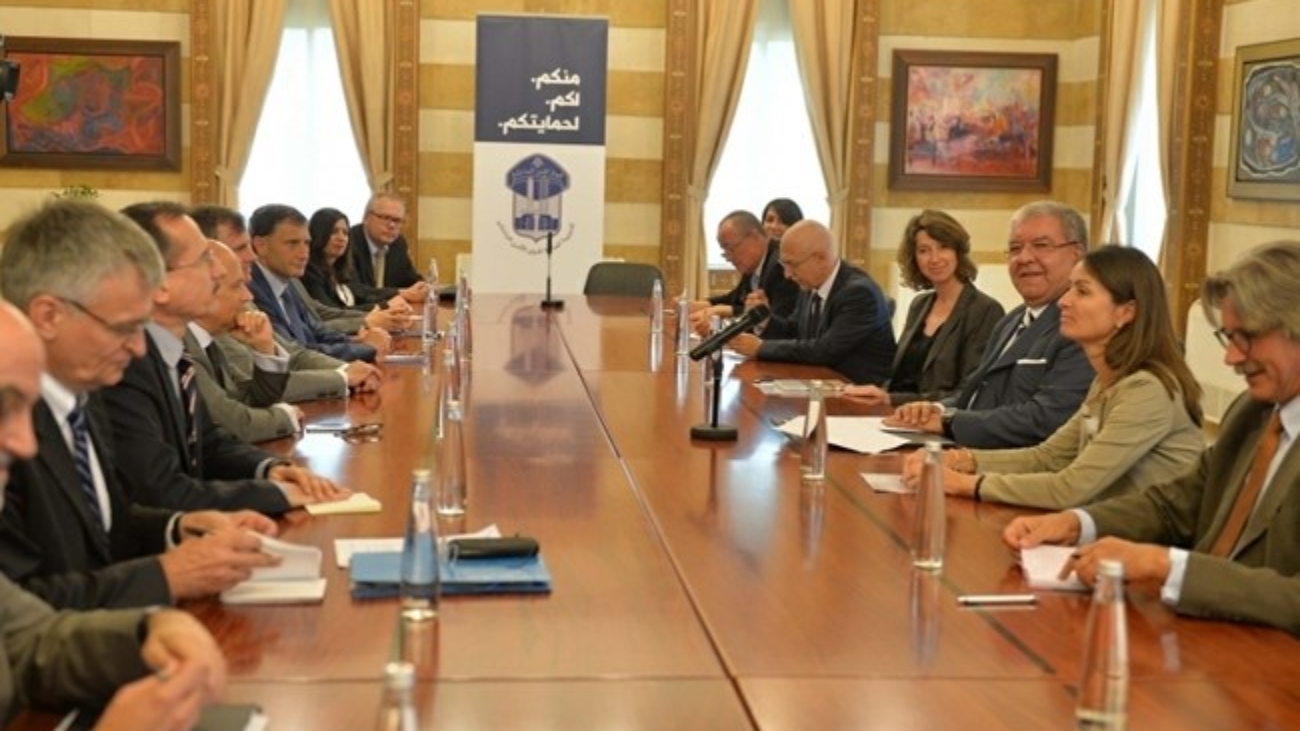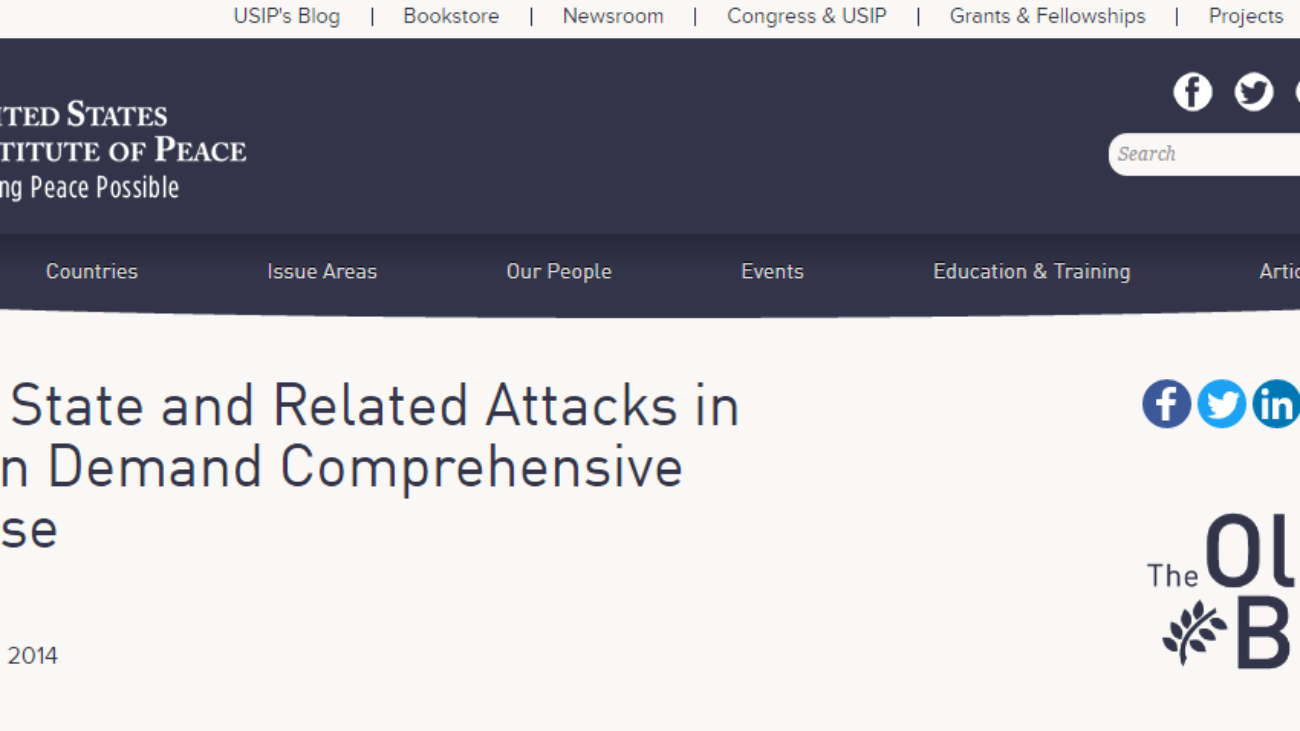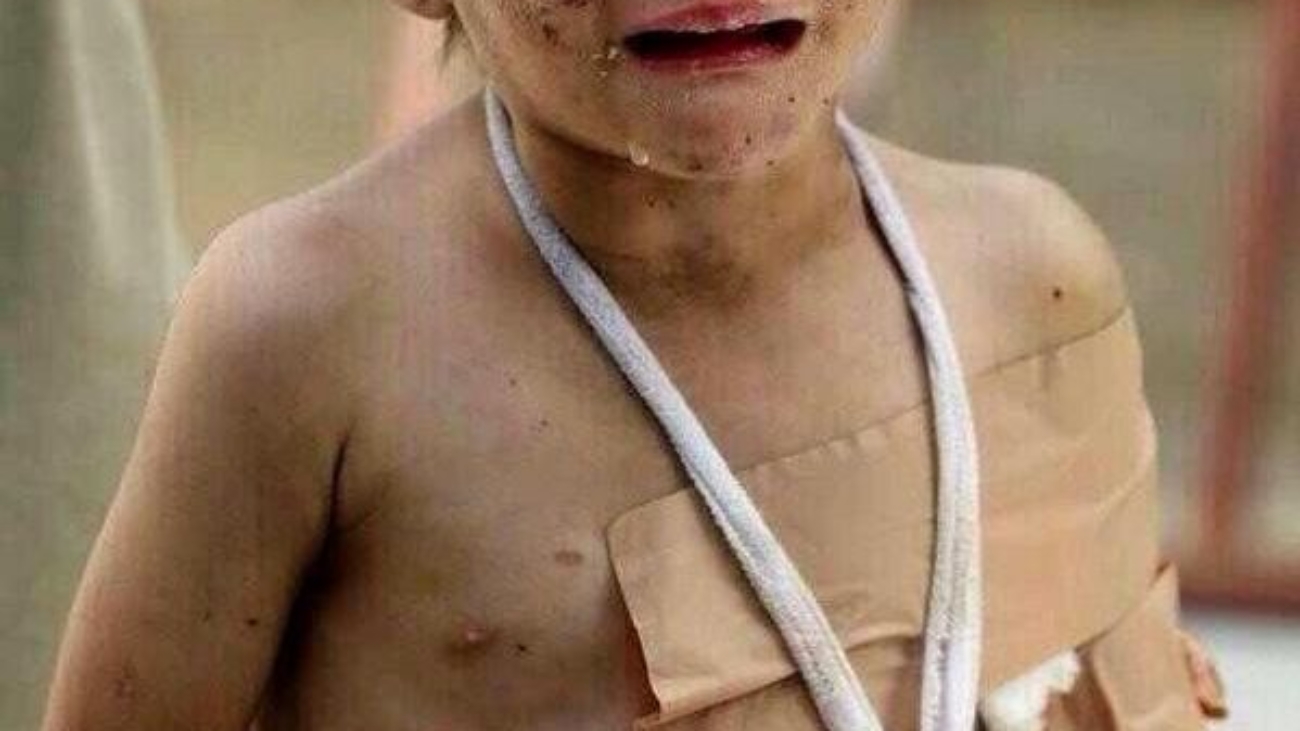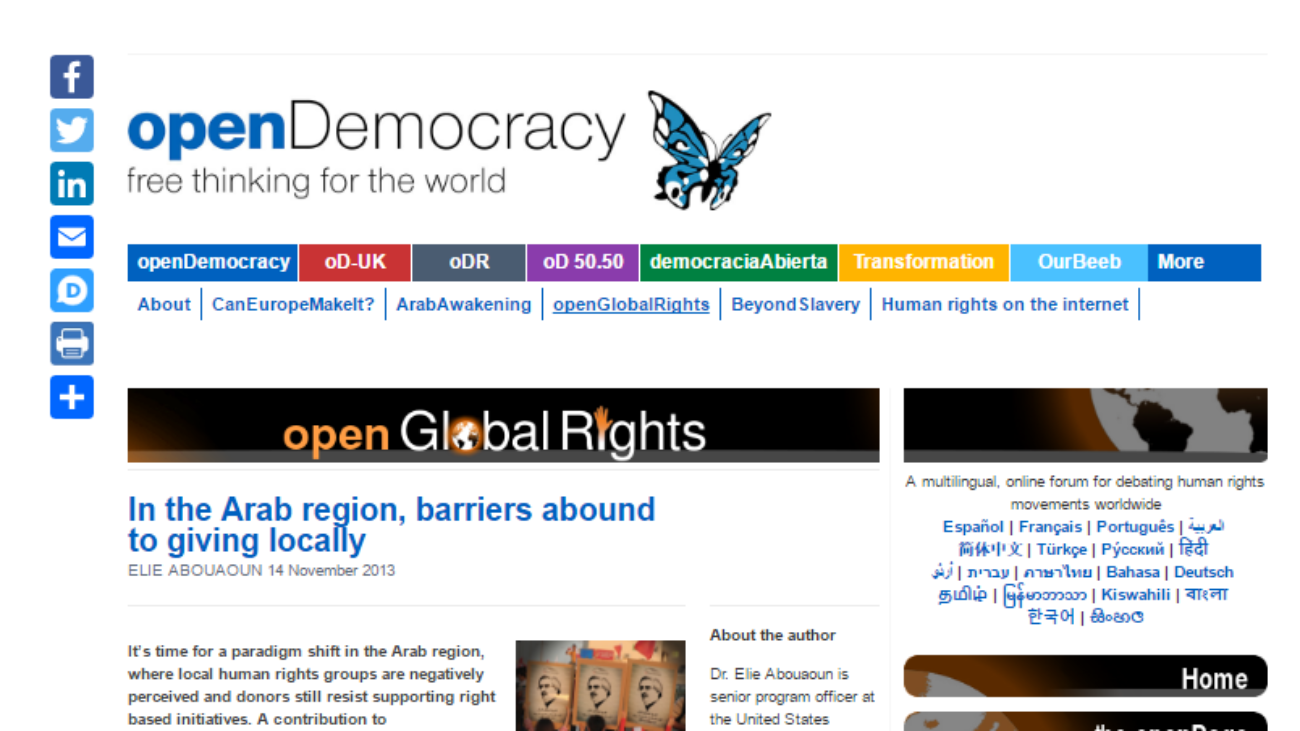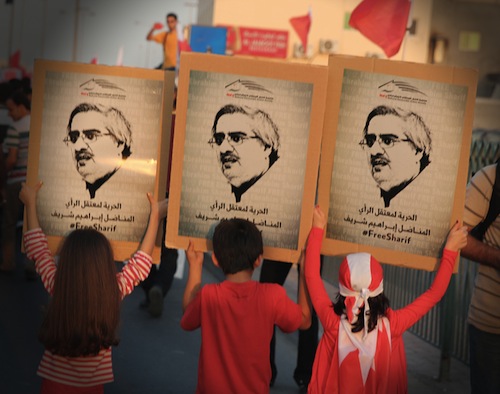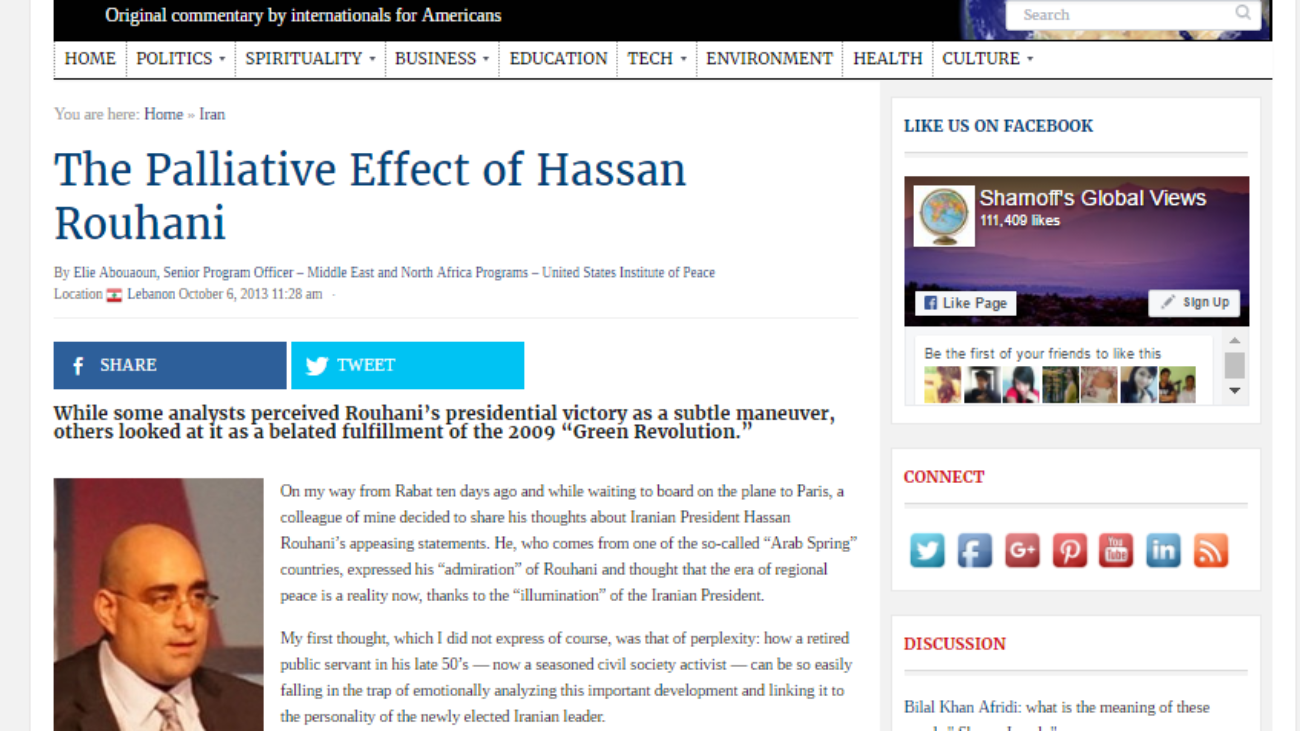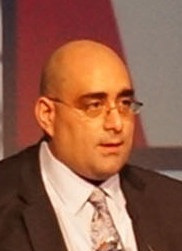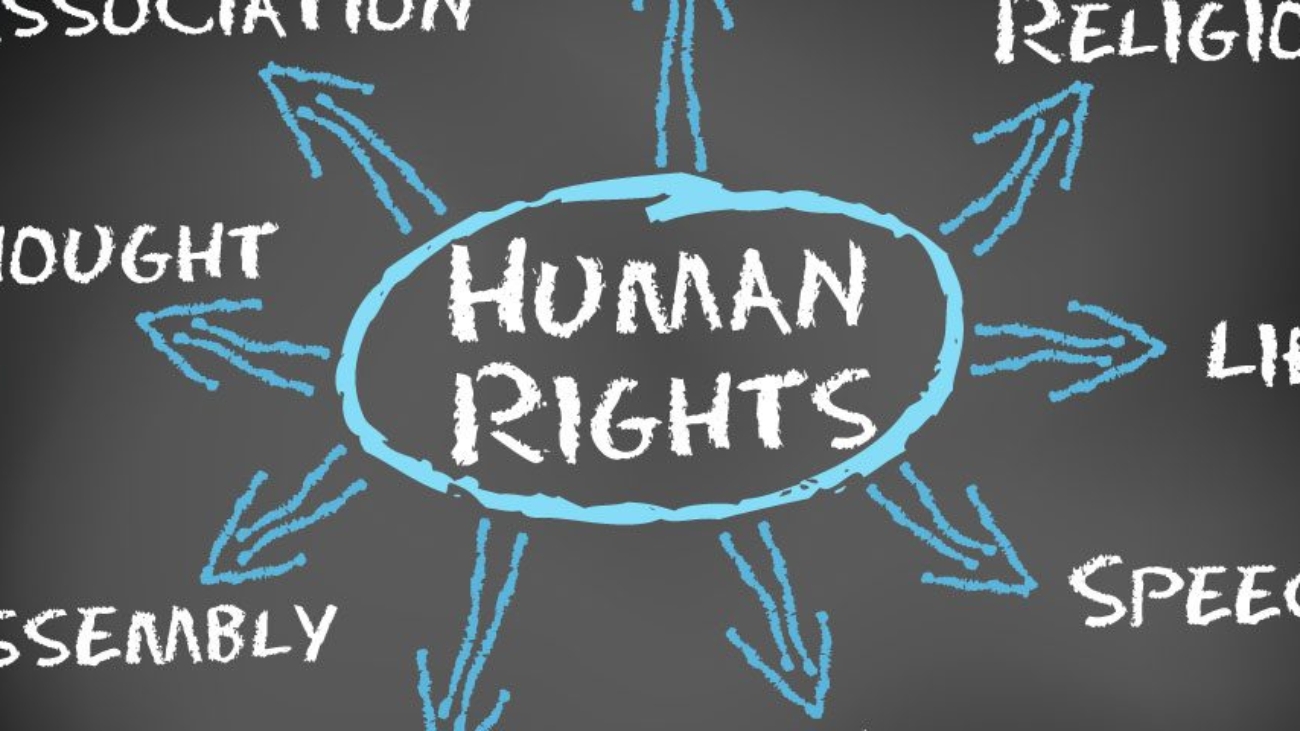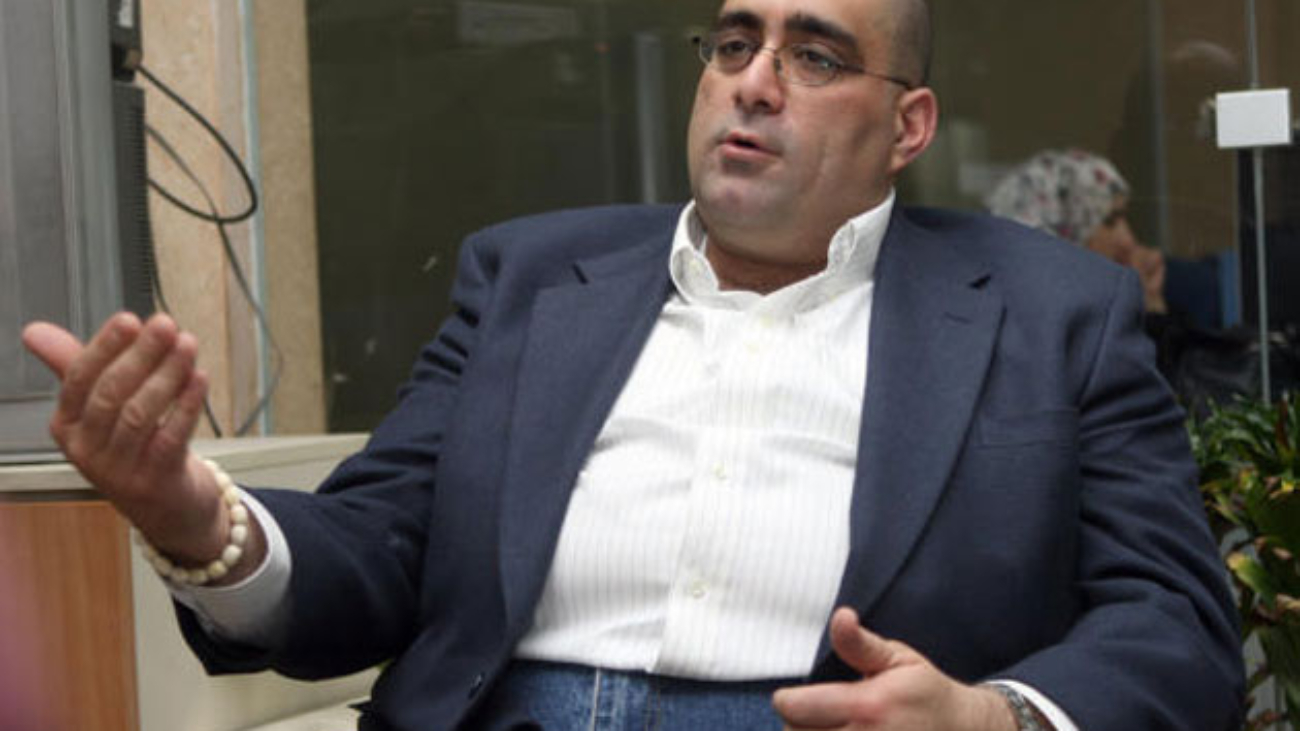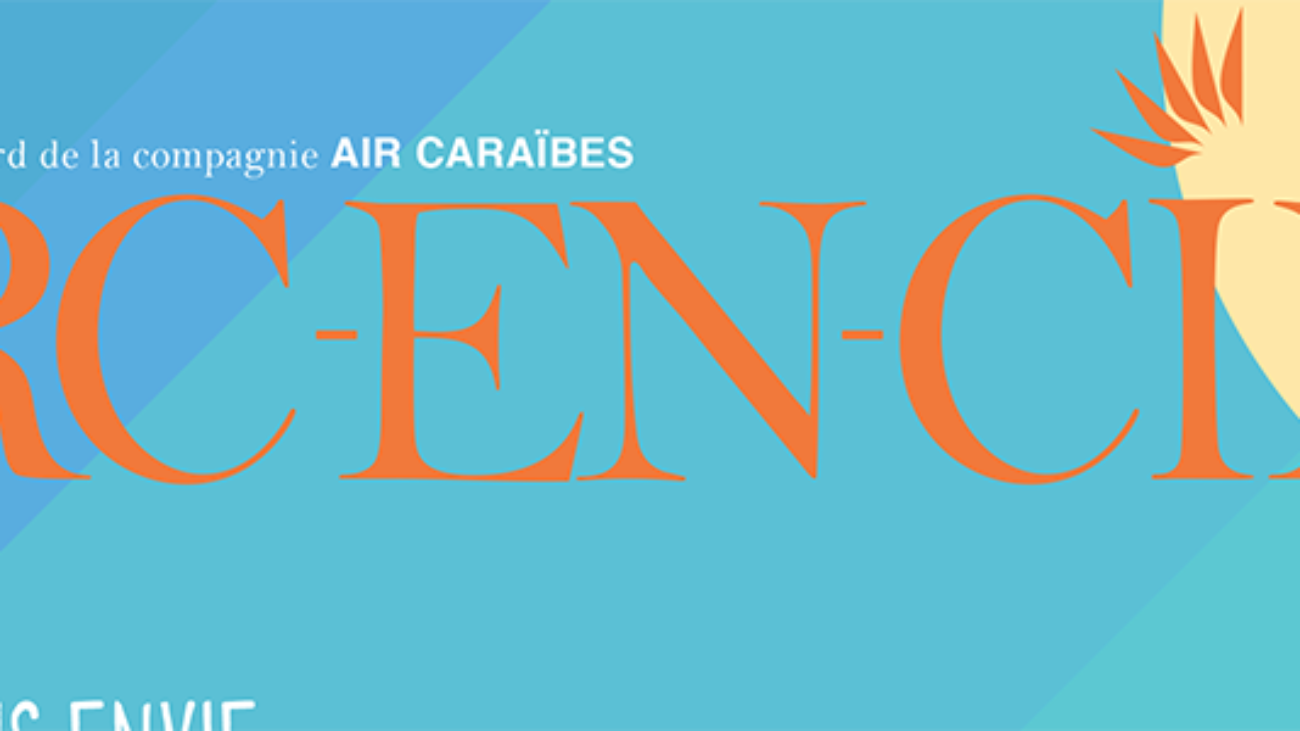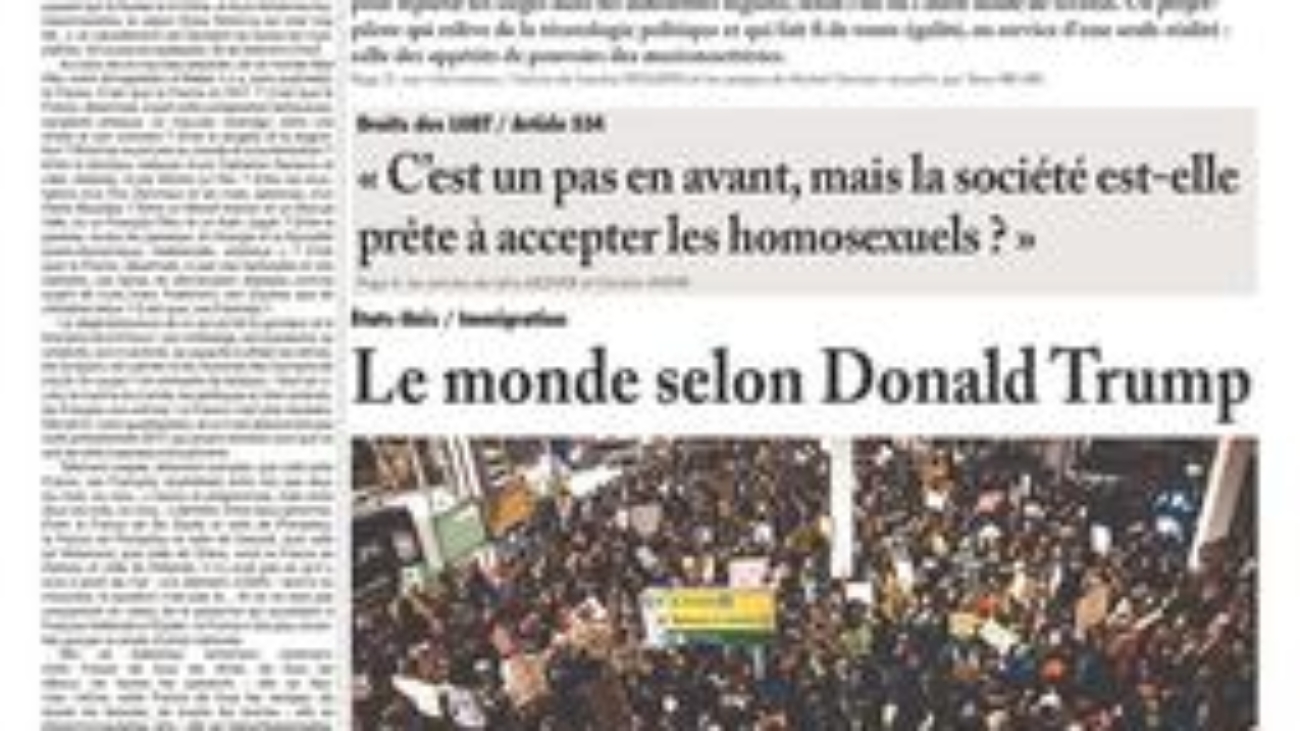SHARNOFF’S GLOBAL VIEWS
While some analysts perceived Rouhani’s presidential victory as a subtle maneuver, others looked at it as a belated fulfillment of the 2009 “Green Revolution.”
On my way from Rabat ten days ago and while waiting to board on the plane to Paris, a colleague of mine decided to share his thoughts about Iranian President Hassan Rouhani’s appeasing statements. He, who comes from one of the so-called “Arab Spring” countries, expressed his “admiration” of Rouhani and thought that the era of regional peace is a reality now, thanks to the “illumination” of the Iranian President.
My first thought, which I did not express of course, was that of perplexity: how a retired public servant in his late 50’s — now a seasoned civil society activist — can be so easily falling in the trap of emotionally analyzing this important development and linking it to the personality of the newly elected Iranian leader.
That Rouhani is breaking up with the recent history of presidential statements in Iran is not to be proved anymore. It is indeed a major shift. However, whether this new turning point will lead to a regional peace is one of the most uncertain statements until further notice.
While some analysts perceived Rouhani’s presidential victory as a subtle maneuver, others looked at it as a belated fulfillment of the 2009 green revolution. In both cases, and in light of what is known about the Iranian regime, it would not have been possible without the blessing of the Supreme Leader (aka “Murshed”).
Therefore, it is worth looking carefully at the considerations that pushed Ali Khamenei to allow this victory; as it is neither about Rouhani’s credentials nor about his opponents’ weaknesses.
Unlike what some believe, the Iranian regime is indeed ideological but proved to enjoy a high level of pragmatism as a tool to exercise the well-known survival instinct. All indicators reflect a high level of discontent among the Iranian population, mainly due to the dire economic and social conditions.
As in many other countries, a very small minority in Iran questions the strategic directions of Iran’s foreign policy as long as they do not affect their own welfare and prosperity. Many fellow activists would disagree with me but value based foreign policy does not exist neither in the West nor in the East; and it is not only the rulers/politicians who promote an all times “interests based foreign policy,” the population of a given country play a major role in asserting this reality.
Therefore, Khamenei possibly saw that the best way to contain this wave of discontent is to allow the victory of Rouhani.
The latter is not known to be a full-fledged reformist. Just before the elections, he was pictured as a “moderate cleric” in the middle between genuine reformists and conservative hardliners. The reformist candidates were denied the right to run for elections; and by default, he remained the closest to them but not a full member of their club.
Therefore, from Khamenei’s perspective, Rouhani’s margin of maneuver may include any action that would allow soothing the internal discontent without undermining Iran’s “strategic” interests.
Since the 1979 revolution, Iran has worked hard to position itself as a regional player. The tools to reach this objective have evolved over time but the tactics remained the same: establishing a direct and painful threat to Israel’s security, infiltrating some Gulf countries (mainly through Shia minorities) as part of its dissuasion tools, recovering an influence in Iraq, and other tactics.
In the first decade of the 21st century, the Iranian regime considered that it reached at least partially its objective: Hezbollah is well poised to threaten Israel’s security, Iranian leverage effect on the Shia minorities in Bahrain, Saudi Arabia, Yemen and Kuwait is never more real than before and Iraq is now under their direct influence. Moreover, they managed to confuse the West and the Gulf countries alike about the nature and the scope of their nuclear activities.
Within three decades, the Iranians became a major regional player, one that even the Turks did not want to mess with.
Consequently, Iran’s red lines certainly include the preservation of these achievements; but they equally include avoiding any unnecessary escalation that would jeopardize what they invested in since 1979. This might explain the stand of Khamenei in favor of Rouhani; which is not anymore a speculation since it was publicly and officially announced that Rouhani is “mandated” by the Supreme Leader to negotiate with the West.
In light of the above, it is not unrealistic to assume that Iran’s official decision – and not Rouhani’s personal choice – is to appease the tensions in the coming period, not because they were illuminated to build a sustainable peace in the region, but just because further escalation would simply be detrimental to their strategic interests.
However, this new Iranian direction triggers a set of negative reactions, internally and regionally. Therefore, the challenge now for Rouhani is to handle the wide array of opponents to the revisited foreign policy.
First, he has to neutralize the influence of the omnipresent and primarily ideological Revolutionary Guards whose spectacular grip over Iran’s political and economic assets cannot be sustained in a context of appeasement.
Some statements, attributed to senior commanders of the regime’s principal pillar, leaked during the last few days clearly indicating a disagreement with Rouhani’s zealous attitude towards the West.
These statements are not an attempt to challenge Khamenei’s blessing of Rouhani. They know that the Supreme Leader is keen on maintaining an internal balance and on keeping some sort of pressure on Rouhani so that he does not cross the red line.
The military commanders are not the only contesters as they are joined by hardline clerics whose function is also to remind Rouhani of the necessary internal balance. In this framework, it is worth noting that the influence of Rouhani’s Iranian opponents is not confined to Iran as some of them have a definite leverage effect on Iran’s external proxies in Iraq, Syria and Lebanon.
Therefore, it is expected that these opponents will fight Rouhani not only in Iran but also by manipulating these proxies.
On another hand, Rouhani was elected because he promised to his own constituency economic and social improvements. As Iran’s economic problems are more of structural nature than contextual one, it is likely that he will not be able to substantially deliver at domestic level, which will deprive him from the support of the same people who elected him. In this context, the last thing one can expect from Rouhani’s opponents is to be merciful in case he does not fulfill his economic and social promises.
Outside Iran, Rouhani has to deal with a steady campaign by Israel to remind the West that Iran is bluffing to gain time. The Israelis are deploying immense efforts to counter Rouhani’s openness towards the West.
Indeed, Israel’s purpose was never to eliminate the threats to Israel’s security but to keep them within certain limits. Without threats such as Iran, Hezbollah, Hamas and others, Israel would lose much of its capacity to blackmail the US and the West, politically and militarily. Accordingly, Israel stands ready to block any compromise that would overturn the perception that Iran is an imminent threat to Israel.
Besides Israel, Rouhani has to cope as well with the radical wings embedded within most of the Gulf monarchies who adopted a hard stand against Iran at least in the past few years. For them, Iran is far more dangerous than Israel and its regional influence has to be abolished. Therefore, any compromise with Iran is against their (perceived) interests. As such, they will not spare any mean to sabotage any potential compromise that would assert Iran’s regional role.
More importantly, a major challenge lying ahead the desired compromise consists of powerful anti-Iranian lobbies in the US and in Europe. While some of them are linked or influenced by pro-Israeli lobbies, their hostile stand is also fueled by national considerations such as the Iranian threats to the national security of their respective countries.
Overall, the chances of Rouhani succeeding in breaking the cycle of escalation are minimal at this stage.
Iran’s new approach might succeed in appeasing the tension – or some it – for a limited period of time. However, the problem will remain on the table as most influential players (the Gulf monarchies, Israel, Turkey…) in the region will still perceive Iran’s growing influence in the region as a threat and will wait for the appropriate timing to further weaken the Iranian beast.
In the meanwhile, the best that can be achieved is a status quo of the present equation manifested by a protracted – possibly fluctuating in intensity – conflict in Syria as well as an artificial but relative stability in Lebanon and in Iraq.
In the absence of the possibility to reverse this equation, all parties to the regional conflict will have to accommodate themselves to this present state of affairs, until further notice.
Dr. Elie Abouaoun is a Senior Program Officer – Middle East and North Africa Programs – at the United States Institute of Peace. He is also a visiting university lecturer at St-Joseph University and Notre-Dame University (Beirut, Lebanon).

